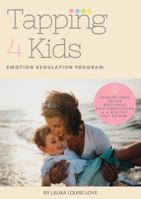“Be mindful when it comes to your words. A string of some that don’t mean much to you, may stick with someone else for a lifetime”. – Rachel Wolchin.
Even though you might not realise it, for those of us working in a professional capacity, the words we speak hold so much power. Especially for those of us in helping and teaching roles, what we say to parents about their children matters. While parents can often disguise their feelings or reactions to our words, a negative, judgemental or thoughtless statement can be particularly damaging to their belief in themselves as a parent as well as how they view their child. The flip side is also true, as a kind word, positive remark or acknowledging their child’s abilities in some way, can also be profoundly meaningful to them. We are in an entrusted, privileged position of influence.
It’s essential professionals are aware of the importance of managing their own emotions, so that when we discuss issues with parents about their children this is coming from a calm and centred place. It’s far easier to put across a message with kindness, care and tact when we are in a good frame of mind, this may mean you have to get back to a parent when you are ready. It’s also essential we feel confident that what we discuss with parents is relevant and doesn’t cross our professional boundaries.
A few simple points to be mindful of in communication with parents;
- What is relevant to share with parents?– Be proactive and seek clarity about this by developing an agreed communication strategy with your teacher. Ideally at the start of the year the team surrounding the student should work out with parents, the level and type of communication they would most appreciate.
- Try to walk in the parent’s shoes – This is all about being empathic. Are all your communications with a parent about when things go wrong? If they are imagine how that might feel – it’s important we make an effort share the successes too!
- Remember you are the professional at all times– The Tasmanian (and small town) reality is that we will often bump into parents of our students at the supermarket or around the local area somewhere. Professional guidelines, policies, procedures and codes of conduct regarding confidentiality are there to protect us. Make sure you are familiar with them.





Leave a Reply